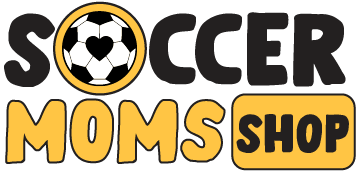What does the term a player “taking ownership” mean to you?
Taking ownership for me is that the player has decided what the game means to them, what their goals are and what they are willing to do to reach those goals. Based on that they do their best during each stage of development to reach towards those goals.
This process should player driven with adult support (parents, coaches, DOC’s etc). Taking ownership looks different for each age and player.
For example a u7-8 player playing at a “competitive level” may not have a long term goal, but they can learn to have FUN and do their best. The environment that adults create is crucial during this time. If players feel safe and encouraged to make mistakes and be creative they will feel good about themselves and continue to play and may then start to think about “dream goals”.
If children are not “all in” with soccer at a young age we need to keep in mind that regardless of their current ambition it is the most beautiful sport to get exercise, make friends and learn life skills.
The more FUN they have, the more they will play, the better they will become and the chances increase for them to take ownership of their soccer experience
What has been your experience over the years with qualities of some players who are intrinsically motivated to work harder and train on their own, and some who are not?
Some players love the game at a deeper level than others at an early age. Others it takes time and some never develop a deep love for the game.
Early soccer experiences must be positive ones for players to fall in love with the ball and then the game. Coaches with understanding of child development who understand what children are actually capable to achieve can enhance “love for the ball/game”, others can do the opposite.
When they are young it is vital that the environment is positive and effort and intention are rewarded over results. This can help players feel motivated to improve even more and develop a deeper intrinsic motivation. Then they will be more likely to want to be their best and play more outside of their team/club activities.
My experience with many top level youth players is they have an ambition and inner love for the game that not even bad coaching/parenting or experience can destroy. It is hard to not think that some of this they are not born with (look at siblings who grow up similarly and one may love the game at a whole different level than the others). These are the exceptions, not the rules.
Many parents want their children to love the game, more than they actually do and push them too hard. There are some players who never have to be pushed and that is pure intrinsic motivation linked with a love for the game. Then talent can be a key factor in how far they take with other circumstances.What role do you think a parent plays in the individual development process/motivation of their child?
The best a parent can do is lead by example in how they live their lives regarding morals , values and standards of excellence in everything they do. If you combine this with supporting your child by finding a club with a holistic – player centered / development environment, you must then accept your children as they are knowing you have done your best as a parent. The rest is up to them and their experiences.
Whether they really love the game and want to dedicate much of their life to it or play with their friends and enjoy themselves, parents must accept this and not push them too hard. Most will quit and many will eventually resent their parents.
If the parents want the player to be more motivated then they are, this is not sustainable long term. It is better to support them while expecting good attitude, effort and sportsmanship and hope they decide at a later stage to be more motivated. This is hard for parents with a child with a lot of potential and less ambition (motivation) and for the child if parents are living through their child and setting unrealistic goals for them (pushing them)
I have a soft spot for the player who truly loves the game, is intrinsically motivated, dedicated and has less talent as they will often be the ones long term to succeed. Many coaches/clubs do not recognize and rewards qualities that are not visible today. It takes a special and experienced coach to see these players – the hidden talent.
Finally, it is important to allow each child to be themselves without comparing to others as no two children are alike.
What are some of the positive qualities of parents you have observed who have done a good job supporting their child in their athletic journey?
Positive qualities of supportive parents I have observed are :
- Realizes that learning life skills and having FUN are #1 and #2 always
- Supportive of their child and their coaches
- Understanding that development is not linear and a long term process
- Realizes that failure is inevitable and necessary to develop resilience
- Accepting of their child regardless of love for the game, talent, ambition, good or bad days/periods
- Helps child to set realistic goals (if the club/coach does not help) and helps guide them in a supportive way
- Loves their child unconditionally
- Does not compare to others
- Avoids expressing their opinion unless child requests it
- Talks positively about their teammates, coaches and other parents
- Most importantly, shares the dream of their child, but allows it to be their child’s dream
Source: https://www.soccerparenting.com
If you like this article, Follow us on FACEBOOK and INSTAGRAM and PINTEREST!

